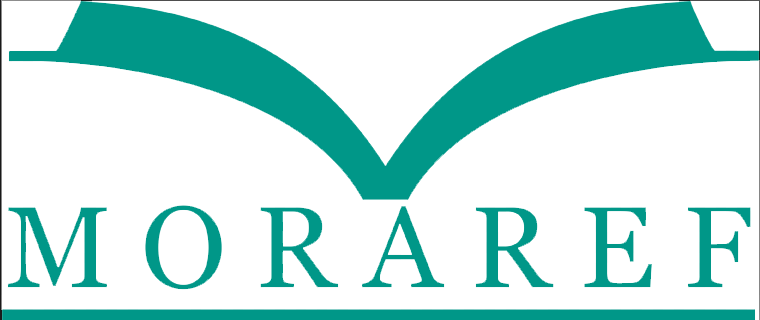Implications of Islamic Education in The Era of The Kalifah Umar bin Khattab in Building Islamic Civilization
Abstract
The aim of this research is to determine the implications of Islamic education during the time of Caliph Umar bin Khattab (624-644 AD) in building Islamic civilization. Khalidfa Umar was an intellectual and mujaddid of the classical era. During his time, Islamic government experienced transformation and great leaps through innovation, political reform and ideas in the nature of modern ijtihad; about law and fiqh, social society, religious moderation and others. Another character of Caliph Umar was his hobby of doing blusukan. The characters above show that Umar is a leader who is out of the box. The contribution of education during the time of Umar bin Khattab to the progress of Islamic civilization was at least through several of its policies, including (1) sending teachers or Islamic intellectuals with madrasas or halaqahs to all Islamic territories, from these madrasas producing new intellectuals in large numbers. (2) ordered the Islamic commander who conquered the territory to establish a mosque as an Islamic Center which would be used as a center for Islamic activities, namely as a place of worship and as a place for educational processes. Apart from that, Umar's rational characteristics and tradition of understanding texts using a textual approach have influenced the rationalistic thinking of subsequent Islamic intellectuals - some of whom contributed to the peak progress of Islamic civilization, especially during the Abbasid dynasty in Baghdad and the Fatimid dynasty in Egypt.
Downloads
References
al-Buraey Muhammad A., Admiistrative Development: an Islamic, terj. Ahmad Nasir Budiman, Islam: LandasanAlternatif Administrasi Pembangunan Cet. 1, Jakarta: CV Rajawali, 1986
Al-Jamali, Muhammad Fadhil, Falsafah Pendidikan Dalam Al-Qur‟an, (Surabaya: Bina Ilmu, 1986
al-Qurabi, Ibrahim, Tarikh al-Khulafa’, terj. Faris Khairul Anam, Jakarta Timur: Qisthi Press, 2009
Ash-Shallabi, Ali Muhammad, Biografi Umar bin Khattab, terj. Khoirul Amru Harahap dan Akhmad Faozan,
Berlianto, Gesha, Pendidikan Islam pada Masa Umar bin Khattan dan Relevansinya dengan Pendidikan Islam Kontemporer, Skripsi, Jursan Agama Islam UIN Raden Intan Lampung, Tahun 2021
Fajriyah, Nurul, “Gambaran Sistem Pendidikan Islam Pada Masa Sahabat”, Serambi Ilmu, Vol. 20 (2019), 3
Ihsan, Fuad, Dasar-Dasar Pendidikan: Komponen MKDK, (Jakarta: Rineka Cipta, 2013
Islam, Farisul, Kontekstuaisasi Pendidikan Islam Pada Masa Umar bin Khattab di Era Milineal, Skripsi, Fakulas Tarbiyah UIN Tulung Agung, Tahun 2020
Lubis, Sopian, Pemikiran Pendidikan Islam Umar bin Khattab, Jural Murabbi Volume 3 Nomor 2 Tahun 2020
Malik, Abdul, “Aspek Pendidikan Dalam Bangunan Peradaban Masa Umar Bin Khattab”, Jurnal Didaktika Islamika, vol. 7 no. 1 2016
Marimba, Ahmad D, Pengantar Filsafat Pendidikan islam, Cet. Ke-6, Bandung: al-Ma’arifah, 1986
Mulyana, Rohmat, Mengartikulasikan Pendidikan Nilai, Bandung: Alfabeta, 2011
Murad, Mustafa,, Umar bin Khattab, terj, Ahmad Ginanjar Sya’ban dan Lulu M.Summan, Kisah Hidup Umar bin Khattab
Murodi, Sejarah Kebudayaan Islam, (Cet !: Semarang: PT Karya Toha Putra, 2008), h. 81
Nurhasanah, Ika, Gagasan Pendidikan Umar bin Khattab, Skripsi Program Studi Pendidikan Agama Islam Fakultas Tarbiyah UIN SUatra Utara Tahun 2020
Rindra , Aqshal Shafatullah Putra, Peran Ustman bin Affan dalam Perkembangan Pendidikan Islam, Jurnal Pendidikan Tematik, Vol.4 N0. 2 Tahun 2023.
Syukur, Syamzan, Suksesi Kepemimpinan dan Transformasi Kekuatan Politik Islam ada Masa Khulafaurrasyididn, Makassar, UIN Press, 2020
Yunus, Muhammad, Sejarah Pendidikan Islam, (ed.) Jakarta: Hida Karya Agung, 2016
Copyright (c) 2023 Syamsiar Syukur

This work is licensed under a Creative Commons Attribution-NonCommercial-NoDerivatives 4.0 International License.





